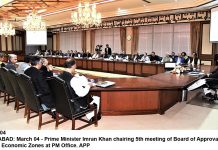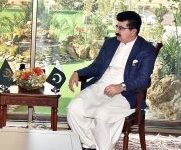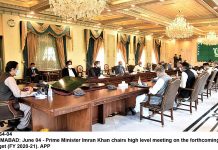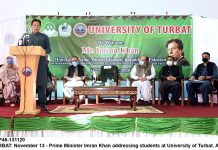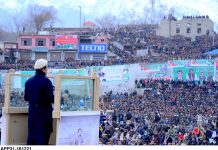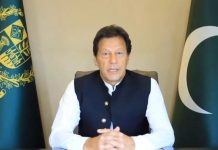LONDON –Adviser on Foreign Affairs Sartaj Aziz has said that Pakistan’s decision in1980s to get involved in the Western strategy to counter the1979 Soviet invasion of Afghanistan led to many serious long term consequences for the country.
However, he said that the new strategic vision for Pakistan’s foreign policy, outlined by the government of Prime Minister Nawaz Sharif remains mindful of the global and trans-regional challenges of security and stability. He expressed these views as he delivered a talk at the Chatham House, in which he outlined the strategic vision of Pakistan foreign policy and gave an insight into the country’s role in the security and stability in the region.
He explained that the strategic vision has four majorpillars:
“i) The first pillar is priority to our own security. This implies a policy of non-interference in other countries’ internal affairs and refrain from fighting other’s wars or supporting causes of conflict that do not concern Pakistan directly.
- ii) Secondly, making economic revival and sustainable development, the centerpiece of our foreign policy. A low rate of growth not only increases poverty and unemployment but also adversely affects our ability to protect our sovereignty and other vital national interests because of growing dependence on others.
iii) Thirdly, economic revival and social progress cannot be sustained without a peaceful neighbourhood. This inturn requires improved relations with Afghanistan, India, Iranand China.
- iv) Finally, we are making concrete efforts to turn Pakistan’s geo-strategic location from a liability into an asset through trade, transport and energy connectivity with China, Central Asia and West Asia. This in turn could also help to re-balance our geo-strategic and geo-economicpriorities.”
The adviser also briefed the audience on how Pakistan was earnestly implementing the strategic visions of its foreign policy by promoting regional connectivity, facilitating reconciliation in Afghanistan and seeking toresume composite dialogue with India so that all outstanding issues, including the core issue of Kashmir, could be resolved.
Sartaj said that Pakistan’s ground realities were rapidly changing for the better, with decisive and comprehensive action to combat violence, terrorism and extremism in Pakistan. Improvement in the security situation has led to visible signs of economic revival and higher investment, he said. The democratic process and institutions of Pakistan were becoming stronger, supported by an independent judiciary, a strong parliament, free media and a vibrant civilsociety, he said.
According to the adviser, Pakistan’s regional geo-strategic landscape is going to be converted from a liabilityto an asset due to its close relations with China, as evidenced in China Pakistan Economic Corridor (CPEC), and improved relations with Russia. However, he termed India’s RAW-inspired terrorist campaigns inside Pakistan and ceasefire violations on the Line of Control in Jammu Kashmir a cause for concern.
Due to improved internal security, coupled with favourable economic policies, Pakistan stands ready for receiving FDI and ensuring healthy profits on the investments, he said. The talk was attended by a large number of distinguished scholars, researchers, foreign policy practitioners and mediapersons and was concluded at a Q&A session.

